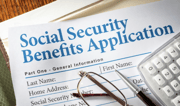Stop confusing this with anxiety! Here's how to spot a deadly condition before it's too late
- Replies 0
Disclaimer: The information provided in this article is for educational purposes only and is not intended as a substitute for professional medical advice, diagnosis, or treatment. Always consult your physician or other qualified healthcare providers with any questions you may have regarding a medical condition or before making any changes to your health regimen.
In the golden years of our lives, we often become more attuned to our bodies and the various signals they send us. However, sometimes these signals can be misleading.
What you might dismiss as just another bout of anxiety could, in fact, be a warning sign of a potentially life-threatening condition: hypoglycemia, or low blood sugar. How can you tell the difference?
Hypoglycemia occurs when blood sugar levels drop below the normal range. While it's commonly associated with diabetes, it can affect anyone.
Dr. Chhaya Makhija, MD, an endocrinologist, points out that individuals who have undergone bariatric or metabolic surgery may also be at risk.
Other contributing factors include certain medications, liver disease, kidney disease, pancreatic disease, and excessive alcohol consumption.
The symptoms of hypoglycemia can be deceptively similar to those of anxiety, including sweating, tremors, palpitations, and a rapid heart rate.

Dr. Akhil Shenoy, MD, an endocrinologist and diabetes medical advisor, explains that the body's fight-or-flight response is activated during a hypoglycemic event, causing anxiety as a natural alarm system to indicate that something is amiss.
However, hypoglycemia can escalate to more severe symptoms such as lethargy, confusion, irritability, loss of consciousness, and even seizures. It's these signs that should trigger immediate action.
So, how can you tell if you're experiencing low blood sugar or anxiety? Here's what you need to know.
1. Immediate action: If you're feeling confused, about to faint, or experiencing any severe symptoms, call emergency services right away. Hypoglycemia can be life-threatening, and it's essential to seek medical help without delay.
2. Blood sugar check: For those with diabetes, if you're unsure whether it's anxiety or low blood sugar, check your blood glucose levels.
A reading below 70 mg/dL indicates hypoglycemia. In this case, consume 15 to 20 grams of simple carbohydrates, like orange juice or a candy bar, and recheck your levels after 10 to 15 minutes. If they remain low, it's time to get medical help.
3. Snack wisely: Even if it turns out to be anxiety, eating a snack can help. Opt for foods with protein and complex carbohydrates, which can aid in managing anxiety and promote calmness. Deep breathing exercises can also help reduce your heart rate.
4. Seek Regular Care: If you're frequently experiencing these episodes, consult your healthcare provider. For anxiety, your doctor may discuss medication options or refer you to a therapist. If it's related to blood sugar, your medication may need adjusting.
Understanding the difference between anxiety and hypoglycemia is vital, especially for seniors who may be more susceptible to health issues. By being proactive and informed, you can take the necessary steps to ensure your well-being.

Have you ever confused anxiety with hypoglycemia? What steps did you take to address it? Share your stories and tips in the comments below!
In the golden years of our lives, we often become more attuned to our bodies and the various signals they send us. However, sometimes these signals can be misleading.
What you might dismiss as just another bout of anxiety could, in fact, be a warning sign of a potentially life-threatening condition: hypoglycemia, or low blood sugar. How can you tell the difference?
Hypoglycemia occurs when blood sugar levels drop below the normal range. While it's commonly associated with diabetes, it can affect anyone.
Dr. Chhaya Makhija, MD, an endocrinologist, points out that individuals who have undergone bariatric or metabolic surgery may also be at risk.
Other contributing factors include certain medications, liver disease, kidney disease, pancreatic disease, and excessive alcohol consumption.
The symptoms of hypoglycemia can be deceptively similar to those of anxiety, including sweating, tremors, palpitations, and a rapid heart rate.

Symptoms of anxiety and hypoglycemia can overlap, but distinguishing between the two is crucial for correct treatment. Image source: Talip Özer / Pixabay.
Dr. Akhil Shenoy, MD, an endocrinologist and diabetes medical advisor, explains that the body's fight-or-flight response is activated during a hypoglycemic event, causing anxiety as a natural alarm system to indicate that something is amiss.
However, hypoglycemia can escalate to more severe symptoms such as lethargy, confusion, irritability, loss of consciousness, and even seizures. It's these signs that should trigger immediate action.
So, how can you tell if you're experiencing low blood sugar or anxiety? Here's what you need to know.
1. Immediate action: If you're feeling confused, about to faint, or experiencing any severe symptoms, call emergency services right away. Hypoglycemia can be life-threatening, and it's essential to seek medical help without delay.
2. Blood sugar check: For those with diabetes, if you're unsure whether it's anxiety or low blood sugar, check your blood glucose levels.
A reading below 70 mg/dL indicates hypoglycemia. In this case, consume 15 to 20 grams of simple carbohydrates, like orange juice or a candy bar, and recheck your levels after 10 to 15 minutes. If they remain low, it's time to get medical help.
3. Snack wisely: Even if it turns out to be anxiety, eating a snack can help. Opt for foods with protein and complex carbohydrates, which can aid in managing anxiety and promote calmness. Deep breathing exercises can also help reduce your heart rate.
4. Seek Regular Care: If you're frequently experiencing these episodes, consult your healthcare provider. For anxiety, your doctor may discuss medication options or refer you to a therapist. If it's related to blood sugar, your medication may need adjusting.
Understanding the difference between anxiety and hypoglycemia is vital, especially for seniors who may be more susceptible to health issues. By being proactive and informed, you can take the necessary steps to ensure your well-being.
Key Takeaways
- Symptoms of anxiety and hypoglycemia can overlap, but distinguishing between the two is crucial for correct treatment.
- People with diabetes are most at risk of hypoglycaemia, but it can also affect others, particularly after certain surgeries or due to other health conditions.
- Severe symptoms of low blood sugar include lethargy, confusion, irritability, loss of consciousness, and seizures, which require immediate medical attention.
- If experiencing rapid heart rate, palpitations and sweating, it's advised to check blood glucose levels if diabetic, consume 15 to 20 grams of simple carbohydrates if levels are low, and seek medical advice whether symptoms are caused by anxiety or hypoglycemia.
Have you ever confused anxiety with hypoglycemia? What steps did you take to address it? Share your stories and tips in the comments below!
Last edited:






